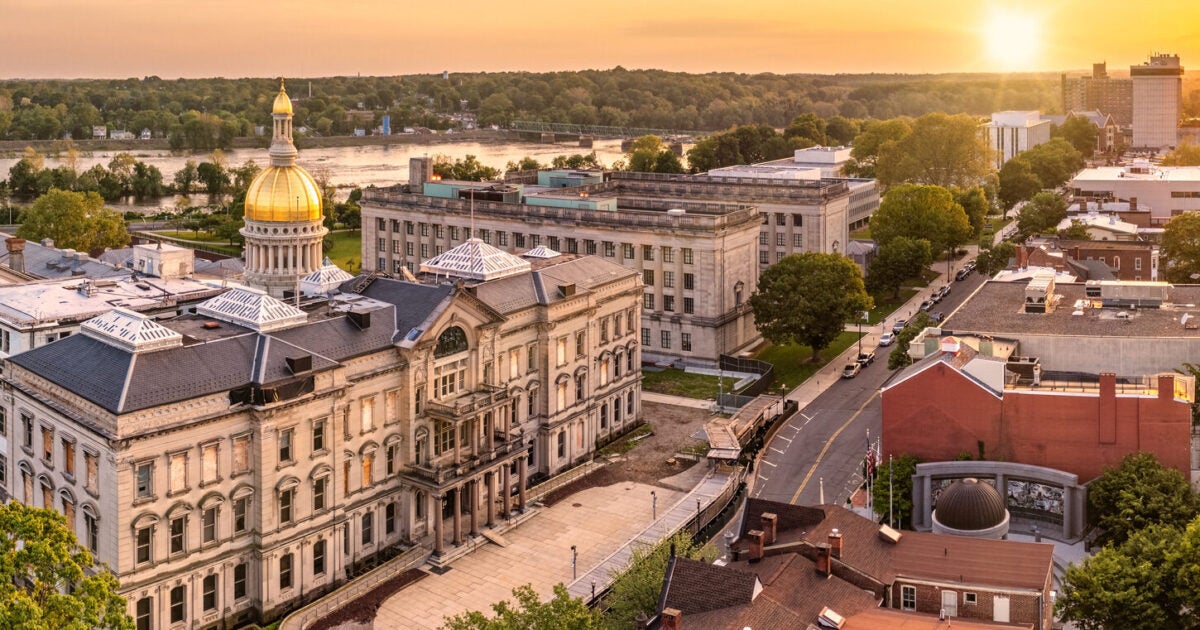
Should your ZIP code, income, or race determine whether you breathe clean air or drink clean water? New Jersey answered with a resounding “no” in 2020, when it became the first U.S. state to pass a law requiring its state regulators to consider the environmental and public health impacts on overburdened communities when they consider permit applications.
Kudos to the Garden State! However, for two and a half years, state regulators were not enforcing the law. Finally, on April 17th, 2023, New Jersey’s environmental justice regulations were finalized and adopted.

Environmental justice (EJ) recognizes that the effects of environmental degradation and pollution disproportionately affect marginalized communities, such as low-income neighborhoods and communities of color. Typically, these communities have limited resources to mitigate the negative impacts of pollutants, and therefore are more likely to suffer from environmental health problems. Addressing these inequalities requires making environmental justice an integral part of our solutions for tackling climate change.
In September 2021, the U.S. Environmental Protection Agency released its report on “Climate Change and Social Vulnerability in the United States,” citing numerous projected adverse health impacts on low-income and minority groups. For example, Black and African American individuals are 41% to 60% more likely than non-Black and non-African American individuals to live in areas with the highest projected increases in premature mortality due to increases in concentrations of particulate matter (specifically PM2.5). They are 34% more likely to live in areas with the highest projected increases in childhood asthma diagnoses due to climate-driven changes in PM2.5. The report goes on to cite disproportionate impacts on socially and economically vulnerable groups from extreme temperatures, coastal flooding, and inland flooding.
In 2020, Trenton passed the Environmental Justice Law, which mandates the New Jersey Department of Environmental Protection (NJDEP) to reject certain permits for developments relating to gas-fired power plants, sewage plants, and recycling facilities if they have a disproportionate negative impact on overburdened communities. This landmark statute has grabbed the attention of other states and the federal government.
Almost two years after the passage of the EJ statute, NJDEP proposed its regulations on June 6, 2022. Governor Murphy says officials received reams of public comments and have to review and incorporate them into the final rules. Business and industry leaders complained that these rules would prevent any new manufacturing or the expansion of existing businesses, forcing companies to relocate out of the state.
Meanwhile, environmental activists bemoaned that the passage of time was continuing to overburden minority and low-income communities. On September 21, 2021, NJDEP issued an Administrative Order 2021-25 in an attempt to impose a mini EJ analysis, but even this stop-gap measure was not enough.
The effort to get it right is laudable. But, during these two and a half years, developers of power and manufacturing plants have moved through NJ’s permitting process without a cumulative impact analysis on overburdened communities. In Woodbridge, NJ, Competitive Power Ventures (CPV) is planning a second gas-fired power plant that it claims will be the lowest greenhouse gas emitter in the U.S. and will allow it to close older, less efficient, and higher polluting facilities.
But without a cumulative impact assessment of the facility, the nearby residents and EJ advocates claim that its construction will fly in the face of the EJ Law. Food & Water Watch, an organization fighting the power plant, maintains the plant will be located within six miles of more than 70 public schools and, if approved, the site will become one of the largest climate polluters in New Jersey, emitting more than 4 million tons of greenhouse gases along with toxic air pollutants each year.
The wait is now over! In celebration of Earth Week, Governor Murphy announced the adoption of New Jersey’s EJ regulations. Environmental Justice demands that the impacts on disproportionately overburdened communities must be considered when citing new facilities. NJ is pioneering a community-first approach in engaging the community early in the planning and permitting process and using available public health data to evaluate impacts of proposed facilities.
As the climate crisis is awakening the nation to the fact that a transition to renewable energy sources and a greener economy is needed. Environmental Justice demands that we make that transition equitably. We applaud New Jersey’s EJ leadership as the nation continues to watch and learn.
This insight is a part of our Undergraduate Seminar Fellows’ Student Blog Series. Learn more about the Undergraduate Climate and Energy Seminar.
Julia Pampush
Undergraduate Seminar Fellow
Julia Pampush is a sophomore in the College of Arts and Sciences majoring in Environmental Studies and Design. Pampush is also a 2023 Undergraduate Student Fellow.






GIPHY App Key not set. Please check settings